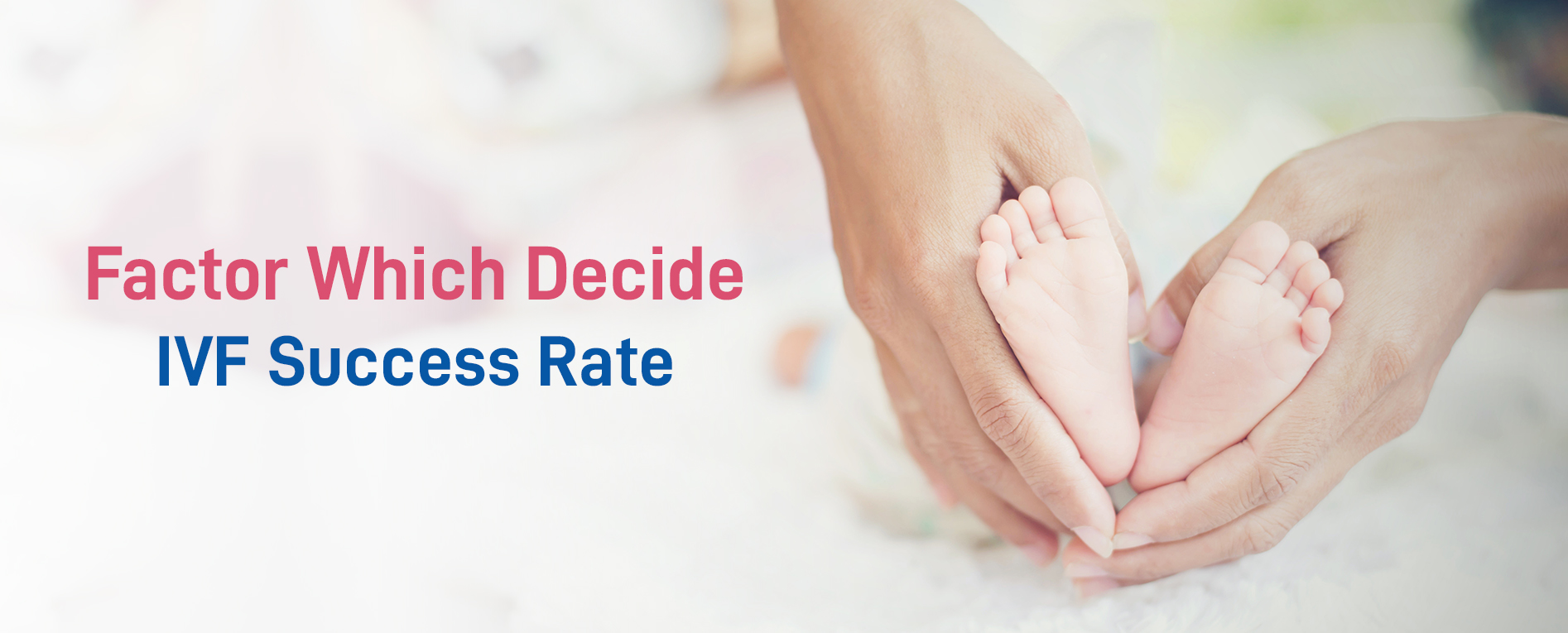
Factors which decide IVF Success Rates Blog by Dr Geetha R

Reproductive medicine is an evolving field constantly working towards improving the success rates IVF has contributed to more than 6 million babies worldwide, innovations keep emerging and the success rates keep improving.
Success rates with IVF treatment though high cannot be 100% always.
The success rates are influenced by many external and internal factors
Internal factors:
Age of the couple and the type of infertility
External factors :
Lifestyle factors
Laboratory quality
Experience and the Skill of the Clinician and the embryologist
1. Age of the couple:
Age has got its own impact on fertility as in any other system .Advancing age has an impact on both the quantity and quality of available oocytes
More than 80% of embryos formed out of oocytes obtained from woman >42 years are found to be aneuploidy or chromosomally abnormal
The IVF success rates dramatically decreases when the woman is >35 years
Success rates are 40% if the woman is <35
30% - 35-37 years
22% - 38-40 YEARS
10% in 40-42
<5 % in woman>43 years
Paternal aging also has an impact on fertility by compromising the sperm quality by increasing the damage on the Sperm DNA hence decreasing the fertilisation capacity as well as embryo quality
Sperm DNA damage is considerably increased in men over 45 years.
2. Type of Fertlity problem
The most important factor which decides the success with IVF is the ovarian reserve.
The higher the number of follicles available, higher the number of oocytes obtained which translates to higher success rates.
Woman with low reserve yield less number of oocytes, < 3 oocytes is considered a decreased ovarian response which compromises the success rates
Low reserve may be a part of aging or conditions like endometriosis, surgery on the ovaries, some autoimmune or chromosomal problems or an exposure to chemotherapy or Radiotherapy
Success rates are very high even upto 80% when infertility is only due to tubal factor or low sperm counts
Suceess rates are compromised when multiple factors are present, Higher the number of factors contributing to infertility poorer are the success rates.
Success rates decease when the woman has multiple fibroids closer to the cavity, or adenomyosis.Both these factors may affect the implantation
External Factors
1. Lifestyle factors
Obesity
Obesity in both male and female is proven to affect the gamete quality.It can also affect the way the body responds to fertility medications, very high doses of gonadotropins may be needed to achieve a desired response
Obesity may cause procedural difficulties which may affect oocyte yield
It is also known to affect implantation and is associated with increased rates of miscarriage
Smoking: Cigarette smoke has serious reproductive consequences for both men and women. The sperm of male smokers has been found to have reduced fertilizing capacity, and embryos from that sperm also display lower rates of implantation. In female smokers, the aging of the ovaries is faster, and their uteruses are less receptive. Overall, the outcome of IVF cycles has been found to be significantly worse in female smokers, who may require twice as many IVF cycles to become pregnant.
2. Laboratory quality
IVF laboratory plays a very crucial part in determining the success rates.After all the gametes need to be handled in a highly controlled and protective environment as the human body
Microorganisms such as germs or fungi can have an adverse effect on developing embryos, so excellent air quality is a must. Specially designed Heating, Ventilating, and Air Conditioning (HVAC) units equipped with charcoal filters and high-efficiency particulate (HEPA) air filters and enough dair pressure to completely change the air in the room 20 times per hour should be standard.
Temperature and light: In the first few delicate hours and days of development, both of these factors are crucial. Keeping embryos at body temperature and filtering out ultraviolet light are two ways to eliminate stress which could damage growth.
An IVF lab with highest quality control constantly maintained by regular auditing of the lab conditions and procedures can definitely help in achieving highest success rates.
3. Experience and expertise of the clinician/Embryologist
Well experienced and qualified IVF clinician/Andrologist are of utmost importance in optimising the success rates as they can offer adjuvants , individualised protocols and sperm selection methods based on the ovarian reserve and sperm parameters respectively.Success of IVF also depends on the optimal preparation of the endometrial lining and the ease of embryo transfer technique.However good quality the embryos may be if fails to implant if the uterine environment is unfavourable or when difficulty is encountered in embryo transfer.A well experienced can make a big difference in these areas.
Qualification and the experience of the embryologist is also invaluable in determining the success rates.Minimal handling of the embryos, speed and gentleness of the procedures like ICSI, embryo freezing, thawing are critically important for high success rates, the minimum the exposure of the gametes/embryos outside the incubator, the maximum are the success rates.
Every fertility journey has an element of uncertainty, but there is a lot that your fertility clinic can do to contribute to IVF success
By Dr. Geetha R
Related Blogs

Understanding Gestational Diabetes: Insights from Dr Shruthi Kalagara
Read More
Urinary Tract Infection (UTI) in Pregnancy
Read More
Early Pregnancy Care for New Pregnant Women: Expert Advice | Motherhood Hospitals
Read More
Body Positivity Tips Post C Section (Cesarean Delivery)
Read More
Vaginoplasty: Procedure, Cost, Risks & Benefits, Recovery
Read More
The Digital Dilemma: Exploring the Medical Implications of Technology on Child Development
Read More
How To Relieve Menstrual Cramps? - 8 Simple Tips
Read More
Benefits of Consuming Folic Acid Tablets For Pregnancy/During Pregnancy
Read More
Navigating Radiology: Ensuring Safe Imaging During Pregnancy
Read More
Navigating Radiological Tests During Pregnancy: Ensuring Safety for Mother and Child
Read MoreRequest A Call Back
Leave a Comment:
View Comments
Previous
Next
HELLO,
Stay update don our latest packages, offer, news, new launches, and more. Enter your email to subscribe to our news letter


 Toll Free Number
Toll Free Number








No comment yet, add your voice below!